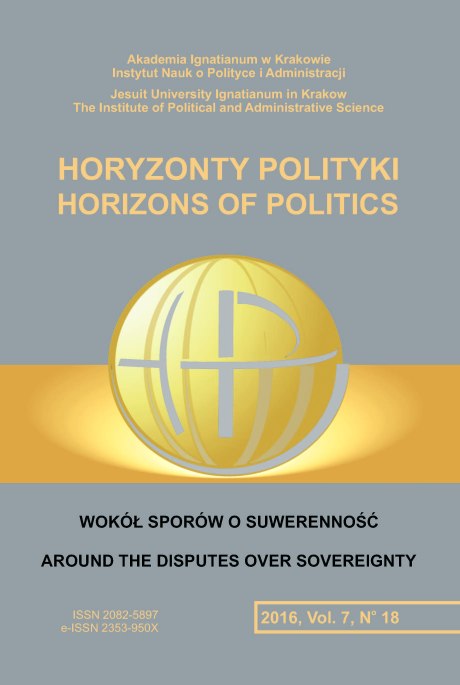Sovereignty and multiculturalism/plurinationalism in Indian and Nigerian federal systems of government
Sovereignty and multiculturalism/plurinationalism in Indian and Nigerian federal systems of government
Author(s): Sergiusz BoberSubject(s): Politics / Political Sciences, Governance, Politics and society, Inter-Ethnic Relations
Published by: Uniwersytet Ignatianum w Krakowie
Keywords: federal system of government;India;multiculturalism/plurinationalism;Nigeria;sovereignty;
Summary/Abstract: Research objective:The present article is focused upon the problem signalled in its title: to what extent the multicultural/plurinational nature of Indian and Nigerian federations is influencing the distribution of sovereignty in those polities.The research problem and methods:The present research is related with two articles written by the same author, dealing with the problem of divisibility/indivisibility of sovereignty in federal systems of government. Both of them have lead towards the conclusion that sovereignty is indivisible in federal systems of government and that it rests solely with the people (i.e. political nation). The method applied in the present article is a comparative one (see remarks below too).The process of argumentation:First, both the basic concepts indicated in the article’s title (i.e. federal system of government; plurinationalism combined with multiculturalism; sovereignty) as well as the analytical framework are clarified (all those elements taken together constitute the methodological spine of the text). What follows, is the inspection of both federal systems of government, structured by the analytical categories and analytical framework indicated above.Research results:The research conclusion is: sovereignty is indeed indivisible in the analyzed variants of federal system of government and it is associated with the political nation. Nevertheless, the multicultural/plurinational nature of both federations is not irrelevant for their general evolution, also involving the distribution of competences constituting sovereignty and vested in the sovereign. That process (more advanced in India) can be described as a cautious decentralization.Conclusions, innovations and recommendations:Further research should involve comparisons with other federal systems of government and the permanent inspection of Indian and Nigerian federations in order to verify if the above interpretations (and trends) would remain valid in mid- to long-terms.
Journal: Horyzonty Polityki
- Issue Year: 7/2016
- Issue No: 18
- Page Range: 125-144
- Page Count: 20
- Language: English

